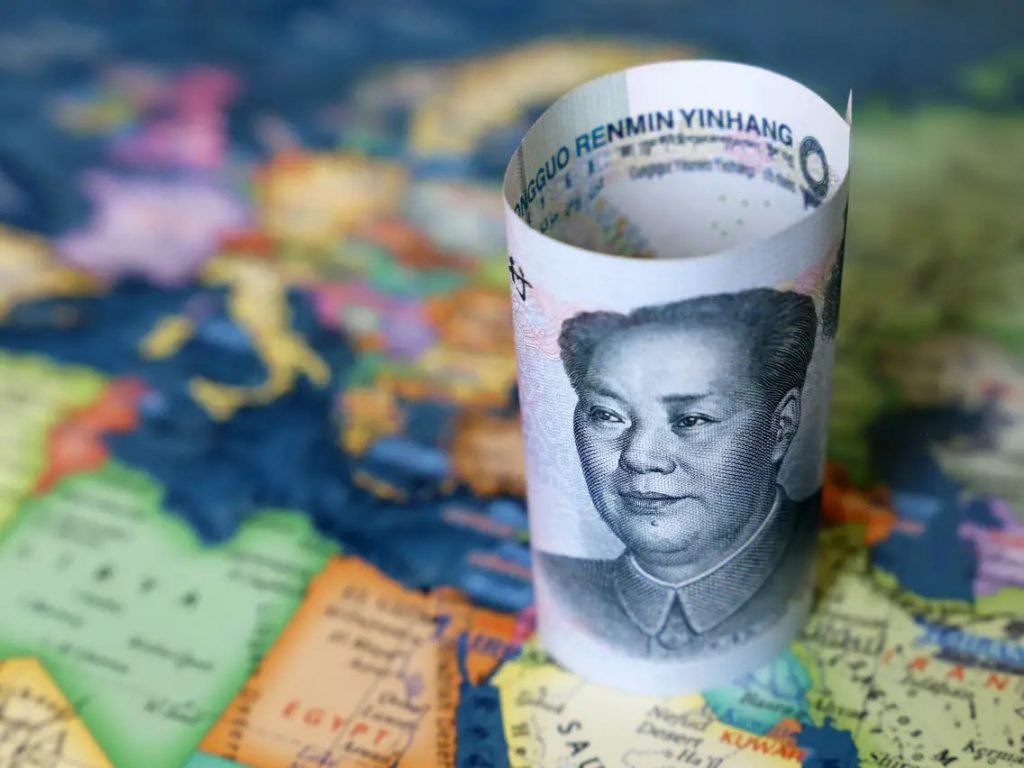Chinese Yuan Plunges to 7.30061 Against USD—Here’s Why Traders Are Panicking
The yuan just punched through a psychological barrier—dropping to 7.30061 against the greenback. Currency markets are flashing red, and Beijing’s usual ’stability’ rhetoric isn’t calming nerves.
Behind the dive: A toxic cocktail of weak manufacturing data, capital flight fears, and that old classic—the Fed’s rate-hike hammer. Meanwhile, PBOC intervention looks increasingly like rearranging deck chairs on the Titanic.
Why crypto traders care: When fiat currencies wobble, Bitcoin whales start circling. History shows capital fleeing EM currencies often finds a temporary home in crypto—until the next shiny depeg distracts them.
Another day, another fiat currency proving why Satoshi built the damn blockchain in the first place.
 Source: Tranding Economics
Source: Tranding Economics
Impact of Market Volatility, Security Risks & De-Dollarization on Yuan and USD
Yuan Strengthens Against U.S. Dollar

The yuan vs U.S. dollar central parity rate strengthened 23 pips to 7.30061 Monday, as officially reported by the China Foreign Exchange Trade System. In China’s spot foreign exchange market, regulations currently allow the yuan to rise or fall by 2 percent from the central parity rate each trading day. Market makers determine the rate through a weighted average of prices before the interbank market opens daily, and this process occurs every business day.
This yuan strengthening occurs at a time when currency market volatility continues to impact global exchange rates in various ways. Financial analysts around the world are closely monitoring how the Chinese yuan strengthening might actually influence international trade patterns in the coming months.
Dollar’s Declining Dominance
The U.S. dollar’s global reserve position has been weakening rather significantly over recent decades, and this trend seems to be continuing. At the start of the century, the currency accounted for over 70 percent of central bank reserves, but by 2024, this figure had actually dropped to just 58 percent amid growing currency market volatility and changing global dynamics.
Professor Bary Eichengreen, International Economist at UC Berkeley, stated:
De-Dollarization Momentum
Deliberate de-dollarization strategies that have been gaining momentum are currently reshaping the yuan vs U.S. dollar relationship. China’s central bank has been steadily increasing its gold reserves while BRICS nations are also exploring various alternatives to dollar-based trade right now.
This statement really highlights how security risks from financial sanctions have accelerated de-dollarization efforts in recent years. The U.S. dollar decline actually accelerated after Russia’s invasion of Ukraine prompted Western sanctions that essentially froze Russian reserves and also limited SWIFT access for many institutions.
Yuan’s Expanding Global Role
The yuan vs U.S. dollar dynamic is definitely changing as China actively pursues currency internationalization at the time of writing. The 2022 Renminbi Liquidity Arrangement has somewhat boosted the yuan’s status in Asia, with researchers noting these initiatives:
Oil Trade and the Petroyuan
Chinese yuan strengthening is particularly evident in energy markets right now. Saudi Arabia has actually begun trading some oil in yuan, while Russia increasingly uses the currency for international payments and reserves.
Viktor Katona, lead crude analyst, described Russia as:
Economist Nouriel Roubini also said:
The strengthening yuan against the U.S. dollar indicates a major transformation in global currency systems that results from both market turbulence and security issues as well as economic superpowers pursuing de-dollarization. Market volatility in the currency markets shows signs of reconfiguring international finance during upcoming years which researchers still have difficulty understanding.

